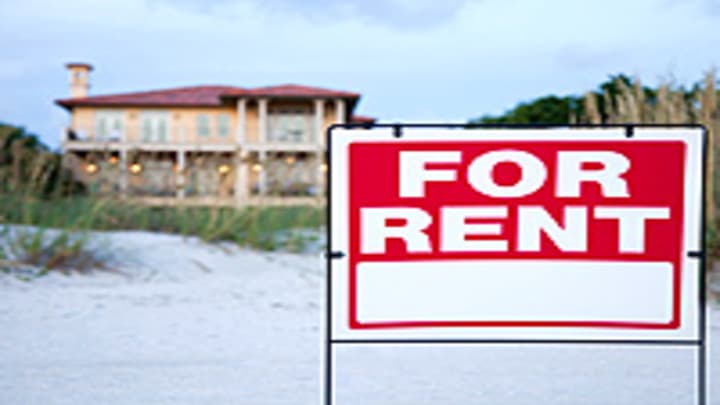Scrapping property agents may cut some fees, but it won’t fix the structural problems behind Nigeria’s housing market
Few people in Nigeria today draw as much sympathy as prospective tenants. Finding an apartment has become both exhausting and expensive, with a flurry of charges—ranging from inspection fees to agents’ commissions—piling on top of already high rents.
“The inspection fee that used to be N2000 is now N5000,” said Paul Obilor, a tenant in Calabar, southeastern Nigeria. “And it’s me that’s looking for a house that will also pay the agent’s transport fare.”
The inspection fee, which varies according to the agent and the location of the property, doesn’t provide the guarantee of finding a suitable place. More often, house hunters pay multiple inspection fees to various agents to raise the odds of finding a suitable place.
From sourcing vacant properties to negotiating rent, property agents play a central role in Nigeria’s housing market. They typically serve as mediators between a landlord and a renter, a job for which they ultimately receive a commission valued at 10% of the annual rent.
Yet this dominance has long aroused widespread controversy, with many Nigerians frequently blaming them for the rising costs of housing.
Some property agents, for instance, demand two or more years’ rent in advance in a bid to earn higher commissions. These charges—combined with others like inspection, agreement and caution fees—can amount to a significant portion of the actual house rent, exacting a financial strain on prospective tenants.
State governments step in
Recently, this exploitative trend has begun to draw attention from the government. Early in September the Ebonyi State Government expressed plans to halt the operations of house and land agents within the state starting from 2026.
“We want to stop these unfair practices and ensure that people deal directly with the rightful property owners,” Francis Nwifiru, the state governor, remarked in a public address.
Ebonyi’s hardly an isolated example. A new bill seeking to curb the influence of property agents in Plateau State is being deliberated at the state house of assembly, according to media reports.
As in Ebonyi, the bill seeks to allow tenants in the state to engage directly with landlords for rental agreements, thereby eliminating these exploitative charges.
Across social media, many have hailed these proposed reforms, urging more state governments to follow suit.
Prohibiting property agents, they argue, will not only cut down the costs of house-hunting but will also foster transparency in the real-estate market.
Beyond property agents
While the housing market is fraught with dishonest property agents, eliminating them altogether is unlikely to curtail the increasing cost of rent.
“Having the agents bear the brunt of the whole blame is misplaced,” reckons Simon Ekemini, an Abuja-based lawyer. “It’s a two-way thing.”
Property agents operate within a complex system comprising more than just landlords. “But nobody seems to look at the other players like the caretakers, legal practitioners and the facility managers,” remarks Moses Everest, a property broker in Calabar.
While he admits that property agents share some blame, Everest also blames the housing crisis on broader economic factors such as sticky inflation and currency devaluation that “have caused the prices of goods and services to increase astronomically in the last five years.”
A 50-kilogram bag of cement, which was sold for N3500 in 2021, now costs N9500. Dangote, Lafarge and Bua are the three market forces that control cement production in Nigeria.
In 2024 alone, the value skyrocketed by more than 100%, driving a consequent increase in the price of derivative products like building blocks—which are then passed on to tenants.
The current economic straits have also inspired a wave of hikes on old properties. Caretakers and property managers—often acting without landlords’ consent—regularly impose arbitrary rent hikes
Obilor says that rent for his self-contained apartment jumped from N270,000 to N530,000—a 100% hike that was due to repainting and repair costs, according to his caretaker.
“If the landlord weren’t supporting these practices, agents wouldn’t be confident exploiting potential tenants,” says Obilor, the Calabar-based tenant.
Perhaps one notable factor that’s spurred the increasing spate of rent charges is the gap in awareness.
There’s no national law imposing a cap on rent increases in the country. But the Lagos State Tenancy Law provides a comprehensive guide for landlord-tenant relationships. Therefore, ramping up awareness is crucial, Everest says. “The government should be holding sensitisation programmes and workshops.”
Given that the housing crisis entails a complex interplay of factors, addressing it will require various approaches.
Also important, says Ekemini, is determining prices for properties in line with the revenue of the state. “If you want to invest your money in any property, you have to be cognisant about the market. Will people be able to afford it?”
The government should review laws to ensure that they align with the revenue potential of a location.
Eliminating house agents hardly addresses the problem. Despite the backlash, property agents are “necessary evils,” Everest says.
Summary not available at this time.






